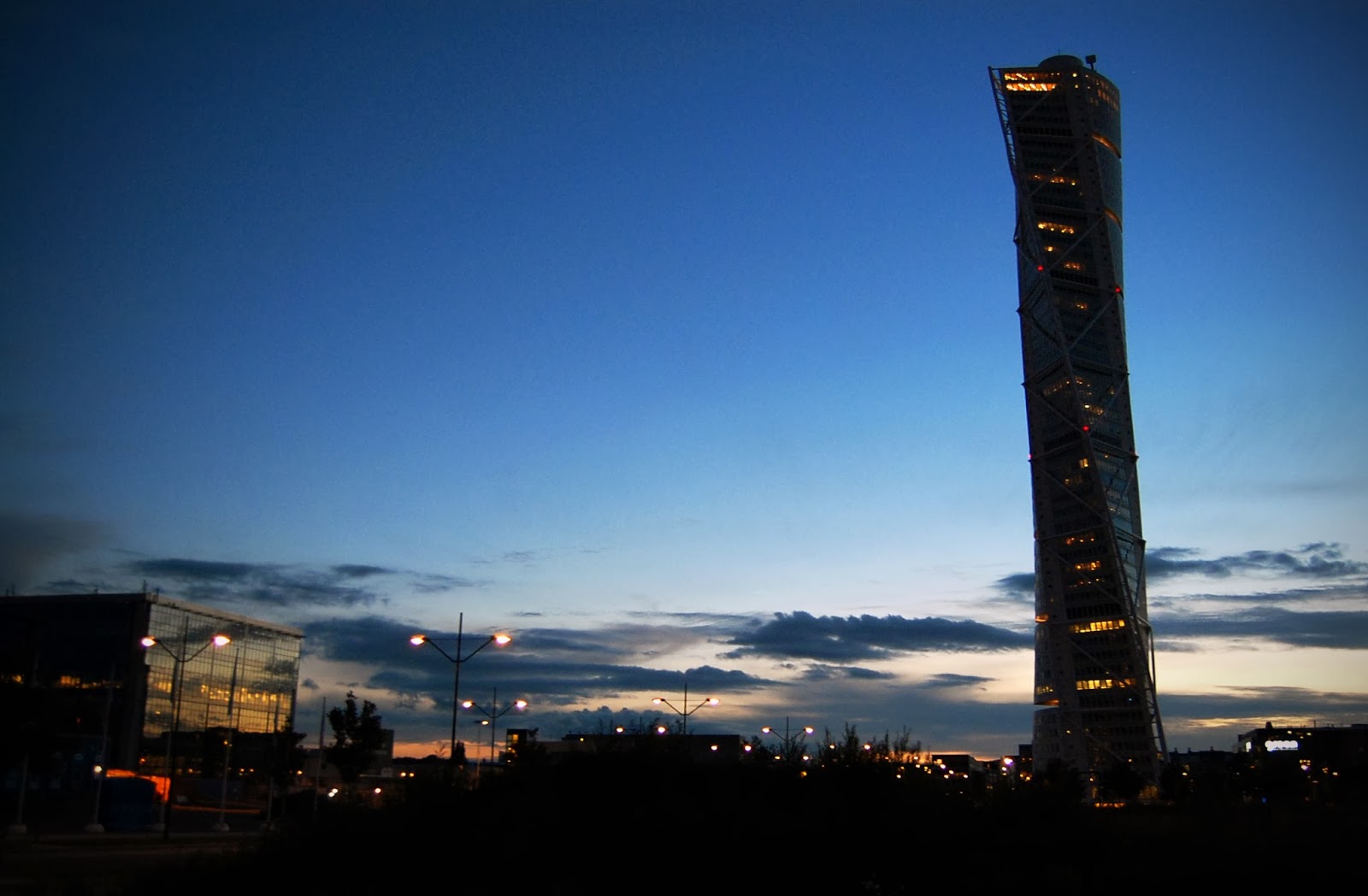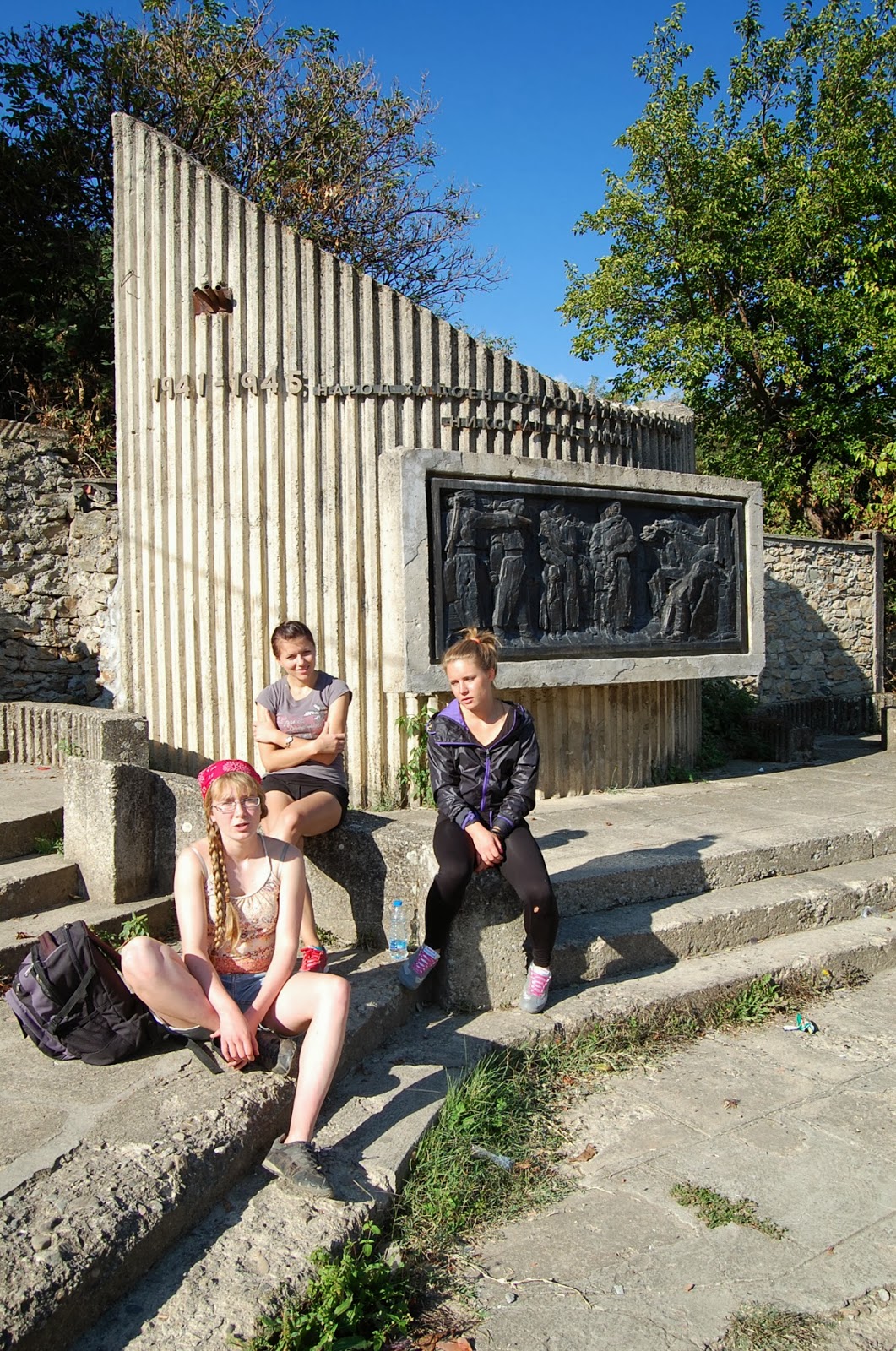Leaving at 6:30 in the morning from Bitola, we did not make it to Sofia until about 8:30 PM. This included stopping for a break to eat gyros in the border town of Delcevo, as well as two additional hours of walking 10 kilometers to the border. Needless to say, by the time we arrived in Blagoevgrad, after the sun had already departed beyond the hills, we elected to take the 6 Euro bus the rest of the way to the capital and pass out in the comfortable seats.
Looking at the fancy new version of Google Maps, the distance does not seem as far as it is. However, walking 10 kilometers to get to a border crossing puts it into perspective.
After living in Macedonia for the past 18 months, I find it strange that the only neighboring country I have been to so far is Bulgaria. From Bitola, it is literally the furthest destination. Greece is approximately 15 kilometers from the front door of my apartment, yet I still haven't crossed the border there and gone south to Thessaloniki. Instead, I've been four times to Bulgaria. Four. I just cannot get enough of the denial of Macedonian history and drunk Bulgars insisting that as a Macedonian, I don't have a national identity: that I am just one of them. Under normal circumstances, I just politely insist, 'actually... I am American. So your entire argument is a moot point.'
Despite the neighboring disputes and territorial disagreements, I always have a blast every time I am in Sofia. Comparatively speaking, it is twice the size of our own capital, Skopje. As a member of the European Union, there are also things that we just simply do not have locally here that we can find there. For example, there are lots of McDonalds to eat at, as well as Subway. The grocery stores are massive and completely full of things we cannot get, the restaurants are international and there is more than one sushi spot in the entire country. While the culinary miracles in Sofia are one thing, the architecture is in a league of its own. There are tons of old historic buildings, churches, and university halls in the city center which make for really nice photographs.
This is the Nevsky Cathedral. It's really cool and is one of the largest Orthodox cathedrals in the world!
Here is another angle of the big church. Its style is Neo-Byzantine (there are other, older Byzantine style churches in Sofia as well), and you can see the Russian influence with the golden dome. I think that when they designed the set for Return of the King, a lot of the style of Minas Tirith and Osgiliath are copied from this church.
The People's Park! I love the old communist statues that are still up in Sofia. Macedonia tries to ignore the years under communist Yugoslavia and plays down its importance in the history. However, if you talk to anyone over 30, they remember Tito and the Yugo days as pleasant ones. This particular monument is to the Soviet Army and has unfortunately been neglected over the years.
Another old statue, this time outside of one of the main government buildings. There was currently a lengthy protest going on, and people had painted 'ОСТАВКА' (resign!) on many of the public spaces as a protest against the government corruption. In the background, you can see the beautiful domes of Nevsky's cathedral.
Bulgaria's national theatre! Named after Ivan Vazov, this theatre is only 110 years old. It's beautifully lit up at night and still has many great shows throughout the year.
Following the Sofia adventure and another 14 hour journey home (with seven different, new friends!), I only had a few days to prepare before I had to set off for London to work on a new youth project with partners from Together UK and Together Czech Republic. I was very excited for this trip, mainly because I had planned this entire youth exchange, developed workshops to lead for it, and had a good plan for the events during the course of the week.
For our London trip, I was sent to the project as the coordinator in order to prepare for the upcoming youth exchange that would be a few weeks later in Bristol. So, we were in London for a nice three day meeting to discuss the workshops, timetables, and events for the photography youth exchange.Unfortunately, our mid-service Peace Corps conference came at the worst possible time and I was unable to lead the youth exchange (my colleague from Together did instead) and I had to help set up the teams and logistics from Macedonia.
The postmodern London skyline with the great glass obelisk protruding into the foggy sky. Everyday in London looked pretty much like this in terms of weather. I really wanted to go into this building (the 'Shard'), but it cost 20 pounds (almost 40 dollars) to go to the observation floor. Ain't nobody got money for that.
The trip was a nice way to connect with the team leaders from other countries that would be involved with this project. Aside from myself; Poland, Czech Republic, Slovakia, Italy and Slovenia were also included on the APV (advance planning visit). We stayed in the most interesting, low cost hotel I have ever seen. Easyhotel, like Easyjet, offers the bare minimum for the price; which is great that they can offer things so cheap. However, the room had literally nothing but a bed. No night stand. no decorations on the walls, just a completely empty room with beds, and an interesting bathroom that looked like the inside of a plastic submarine. I fully regret not taking a picture of it.
After the brief meetings to discuss the plans, the group was turned loose in the city to explore all that London has to offer, which as it turns out, is quite a lot. London is approximately 12 million people, compared to Macedonia, its about six times the size. There were millions of different things going on all the time, and after the brief meetings ended, I was able to explore on my own and see all the great things that the city had to offer.
Inside the Tate Modern! This was the most exciting thing for me on the entire trip. The museum is full of modern art, and the whole gallery is situated inside an old warehouse right by the river.
Here is St. Paul's Cathedral from across the river. This weird little bridge was in the 7th Harry Potter movie and is destroyed when the death eaters are wreaking havoc in the opening scenes in downtown London.
Shadows lengthening in the sun. It was finally sunny one afternoon in London! Here you can see the iconic telephone booths that are everywhere in the city. It surprises me that anyone would still use these, but I think the best use is to go inside, shut the door so its quiet and then talk on your cell phone.
The most efficient way to travel anywhere is to take the underground. It has a really cool system, and if you buy the Oyster card, its really not as expensive as you might think. However, if not... it costs approximately 9 USD for a one way journey on this sucker.
Big ol' Ben. No trip to London is complete without seeing it. Here are some lovely flowers next to Westminster Abbey instead.
Following London, I was able to travel to Oxford and visit a friend from our youth exchange in Gradiste the previous fall. Oxford is definitely one of the more interesting towns I have ever been to. It's old. Really old. The town is mostly centered around the famous Oxford University (its famous because James Bond went there), and the university plays a massive role in the population of the city. Like London, Oxford is incredibly diverse, and there are literally people from all corners of the world, studying at the university and living in the community. Unlike London however, the atmosphere is much more relaxed... and it feels like a much safer place to spend the afternoon and evening.
One of the alleys near the campus. There is a sign that says to not enter. But I was told to ignore these signs and went on an alternative tour of the school.
Here's me! Hanging out and pretending I go to university here. They have a guided tour that you can pay to go on, but I find it easier to just know people who work there for a private tour. Thank you Marketa!
This place is awesome. I've never been to such an incredible historical center of education before. Its sure better than going to Baldwin Wallace. By the way, that's a statue, not me.
So, here's a little history about the university itself. The school doesn't actually have a date of foundation, but records go back to as early as 1096, which makes it one of the oldest universities in the world. Undergraduate work is based in the self-governing colleges that make up the university. Its very strange compared to American style universities, where in Oxford you are living in a college for the entire period of your studies. However, the campus is stunningly beautiful and the town itself has its own charm. Getting back from Oxford to Bitola presented a challenge of its own. First, I had to bike to the local bus station at 2:30 am, and take the bus for an hour and a half to Luton airport. For those of you who have never been to Luton, imagine purgatory, with multiple gate changes, and no power stations or WiFi. At Luton, I had to wait three more hours for my flight, which was the most shaky, unstable plan I have ever flown on. Every time I fly Wizzair, I feel relieved when it finally touches down again that it did not fall out of the sky. However, here we are, two months later, so alls well that ends well.















.jpg)



































